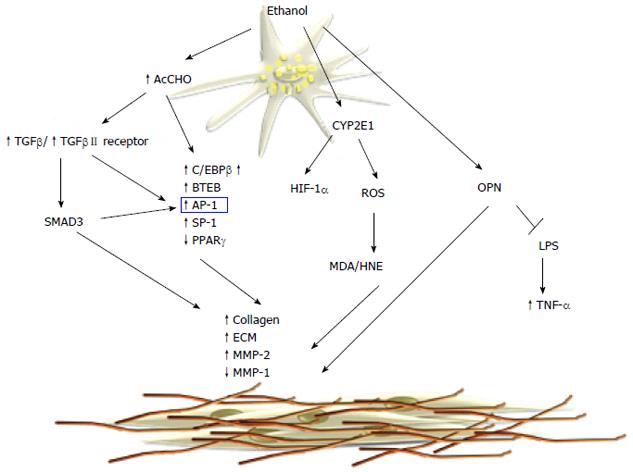Copyright
©2014 Baishideng Publishing Group Inc.
World J Gastroenterol. Dec 21, 2014; 20(47): 17756-17772
Published online Dec 21, 2014. doi: 10.3748/wjg.v20.i47.17756
Published online Dec 21, 2014. doi: 10.3748/wjg.v20.i47.17756
Figure 3 Molecular mechanisms of alcoholic fibrosis.
Acetaldehyde causes increased synthesis of collagen and extracellular matrix (ECM) components through the activation of the transforming growth factor (TGF)-β/SMAD3 signaling pathway. The microsomal metabolism of ethanol leads to protein adduct formation that upregulates collagen synthesis. MDA: Malondialdehyde; OPN: Osteopontin; LPS: Lipopolysaccharide; TNF-α: Tumor necrosis factor-α; MMP: Metalloproteinase; HNE: Hydroxynonenal; AP-1: Activator protein-1; SP-1: Specificity protein-1.
- Citation: Ceni E, Mello T, Galli A. Pathogenesis of alcoholic liver disease: Role of oxidative metabolism. World J Gastroenterol 2014; 20(47): 17756-17772
- URL: https://www.wjgnet.com/1007-9327/full/v20/i47/17756.htm
- DOI: https://dx.doi.org/10.3748/wjg.v20.i47.17756









